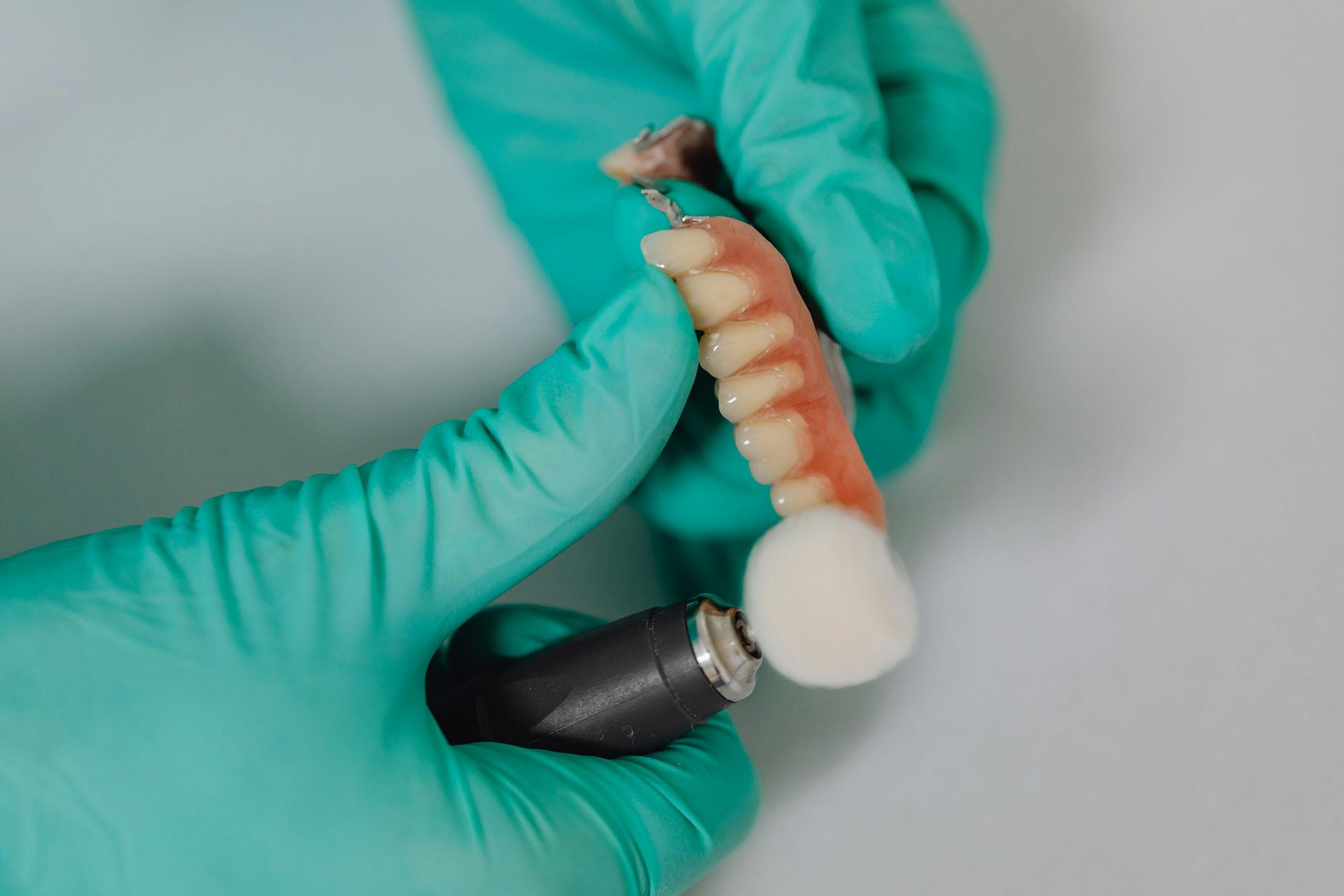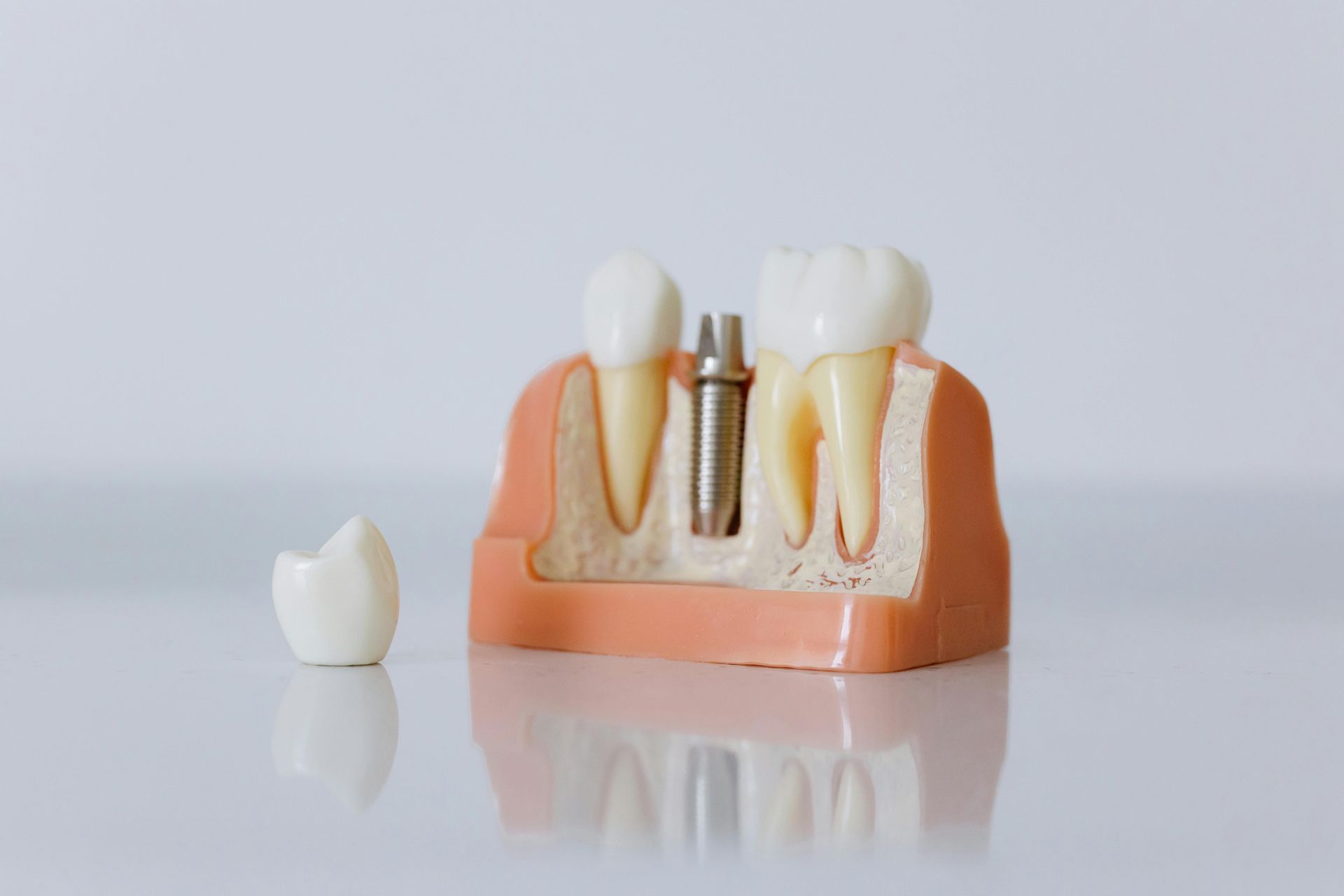How to Treat Sensitive Teeth Naturally: Effective and Gentle Solutions
How to Treat Sensitive Teeth Naturally: Effective and Gentle Solutions
Sensitive teeth can disrupt your daily life, making it hard to enjoy your favorite foods and drinks. The sharp, sudden pain often arises from exposed tooth roots, worn enamel, or underlying dental conditions. If you're looking for gentle, natural ways to ease tooth sensitivity, you're in the right place. Let’s explore how to treat sensitive teeth naturally with easy, effective remedies.
1. Use a Soft-Bristled Toothbrush
Switching to a soft-bristled toothbrush is one of the easiest ways to prevent further enamel wear. Brushing too hard or using a stiff brush can worsen sensitivity. Opt for a brush designed for sensitive teeth to protect your enamel and gums.
2. Rinse with Warm Salt Water
A natural and accessible remedy, warm salt water helps reduce inflammation and strengthens gums. To try this:
- Mix ½ teaspoon of salt into a glass of warm water.
- Rinse your mouth for 30 seconds, twice a day.
Salt water also has mild antibacterial properties, promoting overall oral health.
3. Apply Coconut Oil for Oil Pulling
Oil pulling is a centuries-old remedy that can help reduce tooth sensitivity by removing harmful bacteria and promoting gum health. Coconut oil is a popular choice because of its antimicrobial properties. Here’s how:
- Swish 1 tablespoon of coconut oil in your mouth for 10–15 minutes.
- Spit it out (do not swallow) and rinse with warm water.
- Brush your teeth as usual.
4. Use a DIY Desensitizing Toothpaste
For a chemical-free alternative to store-bought toothpaste, try this DIY recipe:
- Mix baking soda with a few drops of water to create a paste.
- Add a touch of clove oil, known for its numbing properties.
- Brush gently and rinse thoroughly.
This paste helps neutralize acids and soothes sensitivity.
5. Try Green Tea Rinses
Green tea is packed with antioxidants and has anti-inflammatory properties that benefit sensitive teeth and gums. Use it as a natural mouthwash:
- Brew a cup of unsweetened green tea.
- Allow it to cool and use it as a rinse twice daily.
6. Avoid Acidic Foods and Beverages
Foods and drinks like citrus fruits, soda, and vinegar can erode enamel and worsen sensitivity. Reduce your intake and rinse your mouth with water after consuming acidic items to minimize damage.
7. Chew Sugar-Free Gum
Chewing sugar-free gum stimulates saliva production, which helps protect your teeth by neutralizing acids and strengthening enamel. Look for gum with xylitol, a natural sweetener that fights bacteria.
Lifestyle Changes to Prevent Tooth Sensitivity
- Practice Good Oral Hygiene: Brush twice a day and floss daily to prevent plaque buildup.
- Use Fluoride Products: Fluoride helps strengthen enamel and protect against decay.
- Wear a Mouthguard: If you grind your teeth at night, wearing a custom-fitted mouthguard can prevent enamel damage.
- Visit Your Dentist Regularly: Routine dental checkups can help identify and address sensitivity issues early.
When to See a Dentist for Sensitive Teeth
While these natural remedies can help manage mild tooth sensitivity, it’s essential to consult your dentist if the pain persists or worsens. A professional can diagnose underlying issues, such as cavities or gum disease, and provide targeted treatment.
Conclusion
Tooth sensitivity doesn’t have to disrupt your life. By adopting these natural remedies and making a few lifestyle adjustments, you can alleviate discomfort and protect your teeth for the long term. At SolSmile Lounge, we’re here to support your journey to healthier, happier smiles.
If you’re experiencing persistent sensitivity, schedule a consultation with us today. Let us help you smile with confidence, naturally!










